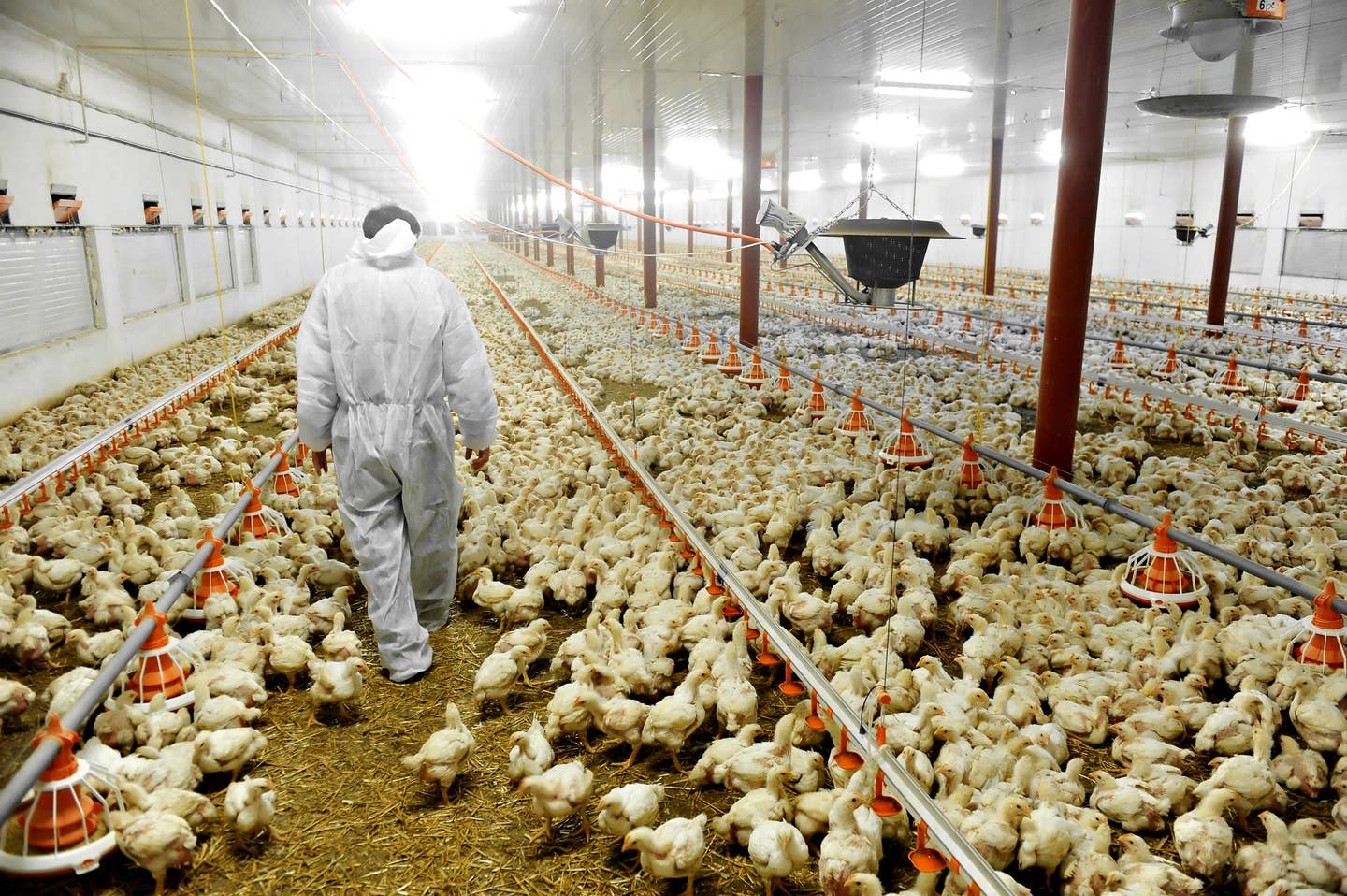
Why Experts Warn Factory Farms Could Cause Another Pandemic
In today's factory farms, animals are being raised packed so closely together that there is a risk of sparking the next pandemic, according to experts in a new scientific paper that warns we have to rethink agriculture in America.
“When we overcrowd animals by the thousands, in cramped football-field-size sheds, to lie beak to beak or snout to snout, and there’s stress crippling their immune systems, and there’s ammonia from the decomposing waste burning their lungs, and there’s a lack of fresh air and sunlight — put all these factors together and you have a perfect storm environment for the emergence and spread of disease,“ says Michael Greger, the author of Bird Flu: A Virus of Our Own Hatching, who previously wrote How Not to Die and How Not to Diet.
Factory Farms Make Up the Majority of the Meat Industry
You may think that the free-range beef or the farm-raised eggs are a healthier and more ethical alternative to the environmentally devastating impacts of factory farming. But current conditions in industrial agriculture are rife for future disease spread, and though "free-range" sounds idyllic, it's just a way of saying the birds have access to being outside for part of the day, but can still be jammed into large pens by the tens of thousands of animals and birds per yard, it's hardly safe or ethical.
Today, so-called factory farming still accounts for an estimated 99 percent of the meat we raise around the globe and 90 percent of the meat consumed in the United States. The Sentience Institute estimates that "around 31.0 billion land animals and 38.8 to 215.9 billion fish are being farmed globally at any given time."
Options that some think of as more ethical such as free-range or family farmed animal proteins do not makeup as nearly as much of the industry's share as one may think from a quick glance at your local Whole Foods shelves. The devastating effects of factory farming include water and air pollution, deforestation and methane gas emissions. Beyond these highly deleterious environmental impacts, factory farms provide a hotbed for spreading the next animal-to-human disease, which the coronavirus COVID-19 pandemic has put front and center on our radar.
How Could Factory Farming Cause Another Pandemic?
Some scientific journals have cited animals such as the endangered pangolin as a possible link to how the COVID-19 outbreak lept from animals to humans, as it carries a coronavirus genetically almost identical to the one that caused the current pandemic. So how do factory farms that are filled with common farm animals like cows, pigs, and chickens pose a threat to our health? It has to do with the unsanitary conditions in these factories and meat processing units, according to experts.
The ASPCA describes a factory farm as any "industrial facility that raises large numbers of farm animals such as pigs, chickens or cows in intensive confinement where their movements are extremely inhibited. Animals are kept in cages or crates or are crowded together in pens. These types of farms are sometimes referred to as concentrated or confined animal feeding operations (CAFOs)."
With this type of overcrowding, diseases can spread rapidly and are difficult to control. A recent FAIRR report for investors noted the danger that the meat industry poses to both animals and consumers. The report describes, "Three in four emerging infectious diseases in humans are passed on from animals (termed zoonotic diseases). Increasingly these are coming from livestock, including strains of swine flu, avian flu, and Nipah virus. Intensive animal production systems involve high stocking density, indoor confinement, chronic stress, lowered immunity and live transport. Together these factors create the perfect environment for deadly diseases to mutate and spread rapidly. Zoonotic diseases can spread to humans through direct contact with infected animals or indirectly through animal waste or animal products. If a highly deadly strain of avian or swine flu were to become highly transmissible between humans, we would be facing the next pandemic."
Optimizing Our Food Systems Against Factory Farming with Veganism
So how can we optimize our food systems to avoid these risks? It's not surprising that investors and consumers alike are betting big on plant-based and vegan alternatives to meat right now. In light of the COVID-19 outbreak, a survey found that 23 percent of Americans are eating more plant-based foods right now. The vegan "egg" giant JUST recently announced a partnership with the largest egg distributor in the US, helping to introduce a more sustainable, plant-based alternative to chicken eggs.
As more consumers reach for plant-based options, and more processors and distributors transition to animal-free products, the risk of a zoonotic disease spreading from factory farm to consumer lessens. In a recent report, the vegan food market is estimated to grow nearly 10 percent by 2025, which will hopefully propel more producers from animal products into the plant-based space.
More From The Beet






